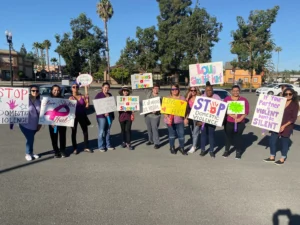In movies, magic shows, and art, illusion can be fun, but illusion in the context of relationships can be dangerous and abusive. Here’s what you should know about the malicious illusion of gaslighting — what it means, how to spot it, and how to protect yourself and others.
What Is Gaslighting?
Gaslighting is a form of psychological manipulation where a person attempts to sow seeds of doubt in a targeted individual, making them question their perception, memories, or sanity. The term originates from the 1938 stage play and 1944 film, “Gaslight,” in which a husband tries to convince his wife she’s going insane by manipulating elements of their environment and insisting she’s mistaken or misremembering when she points out these changes.
Examples of gaslighting include denial of previous abusive events, twisting information, using confusion, and manipulating reality as seen in the classic film. Gaslighting is a cruel tactic often employed by emotional abusers to control and dominate their victims.
Gaslighting: Emotional Abuse
Gaslighting is a major red flag in a relationship, often indicating an unhealthy or abusive dynamic. The primary objective is power and control. By undermining their victim’s confidence and self-trust, the gaslighter positions themselves as the sole beacon of truth, forcing the victim to rely on them to define reality.
By casting themselves as the only reliable source of truth, the gaslighter manipulates the victim into dependency, leaving them emotionally incapacitated and doubting their experiences. This can lead to the victim suppressing their emotions and conforming to the gaslighter’s version of reality, resulting in a deeply harmful cycle of abuse. The gaslighter effectively gains power and control over the victim, causing severe emotional and psychological damage over time.
Warning Signs of Gaslighting
Identifying gaslighting can be challenging because it often starts subtly. However, some warning signs that can help you spot this abusive behavior include:
-
Blatant lying: Gaslighters may set the stage with blatant lies, hoping their victim will accept whatever they say.
-
Denial despite evidence: Even when confronted with proof, gaslighters will deny their actions outright.
-
Manipulation and confusion: They use confusion as a tool to destabilize others, making it easier to control them.
-
Projecting their behavior onto you: If they’re cheating, for instance, they may accuse their significant other of doing it.
-
Turning others against their victim: They often tell others that their victim is crazy, effectively isolating them and strengthening control.
These signs alone, while concerning, don’t necessarily mean someone is gaslighting, but several together should raise concerns.
If you are experiencing domestic violence and are seeking support in San Diego County, learn more about our domestic violence programs here. We work to connect you with vital resources and empower you to renew your life.
Protecting Yourself From Gaslighting
Understanding and identifying gaslighting is the first step in protecting oneself, but it’s not the end. Here are practical steps you can take:
-
Trust your instincts: If something feels off, it probably is. Trust your perceptions and feelings.
-
Seek validation outside the relationship: Sharing your experiences with friends, family, or a mental health professional can provide a necessary reality check.
-
Set boundaries: Make it clear what behavior is unacceptable, and stay firm in those boundaries.
-
Practice self-care: Emotional manipulation can be draining. Prioritize activities that make you feel good and reinforce a positive self-image.
-
Seek professional help: If you feel you are a victim of gaslighting, consider seeking help from a mental health professional. They can provide strategies to cope and decide the best course of action.
Understanding and identifying gaslighting, its implications, and ways to combat it is crucial. With knowledge and resources at our disposal, we can better protect ourselves and loved ones from such damaging manipulation, working toward healthier relationships and a more secure future.
At Crisis House, we are here during these stressful times to support families with our services and resources. We’re leaders in critical services in East County, San Diego, providing crisis intervention, transitional and permanent housing, and services for families and children fleeing domestic violence.
See our impact and help us reach those in need by donating or volunteering today! You can also sign up for our newsletter to stay in the loop as we work to connect families, children, and individuals to crucial resources. Together, we can empower people to renew their lives!







